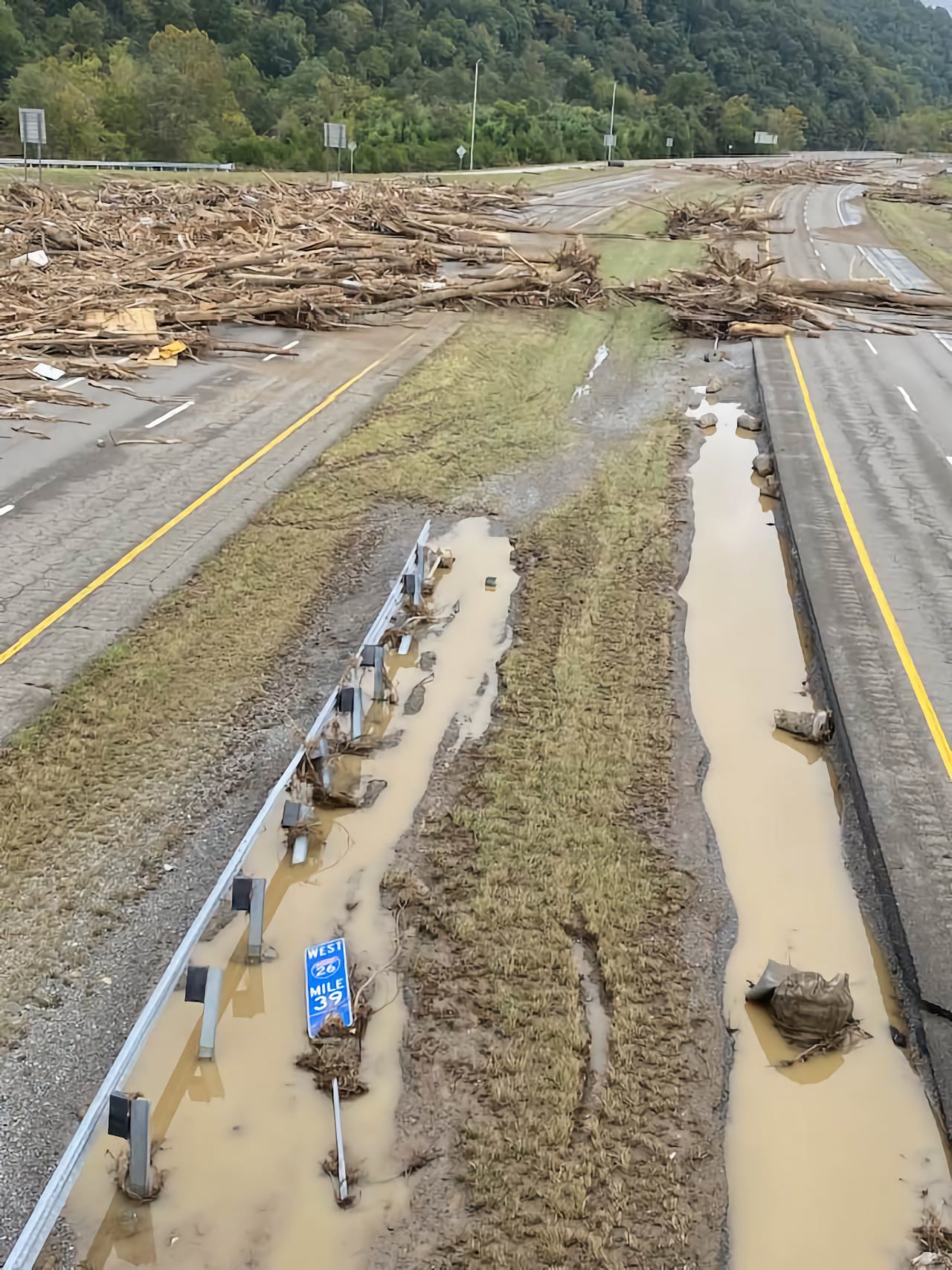Displaying items by tag: climate change effects
Slowing the burn: Nine ET counties collaborate on climate plan
 Hurricane Helene was fueled by unusually warm waters in the Gulf of Mexico before it began its deadly and destructive push into East Tennessee and Western North Carolina. Scientists said global climate change made the storm considerably worse than it would have been in natural conditions. East Tennessee leaders announced a regional climate plan focused on reducing local contributions to climate change. Thomas Fraser/Hellbender Press
Hurricane Helene was fueled by unusually warm waters in the Gulf of Mexico before it began its deadly and destructive push into East Tennessee and Western North Carolina. Scientists said global climate change made the storm considerably worse than it would have been in natural conditions. East Tennessee leaders announced a regional climate plan focused on reducing local contributions to climate change. Thomas Fraser/Hellbender Press
Plan suggests actions on public and private levels to slow warming climate
KNOXVILLE — Area leaders unveiled a plan to improve air quality, health and quality of life across the metro region.
Breathe: A Climate Action Plan for the Knoxville Region, released Nov. 12, is the result of a two-year collaboration, and is the region’s first comprehensive climate action plan.
The city collaborated with regional leaders and a working group of representatives from over 50 organizations across nine counties to help shape the plan’s goals and strategies, ensuring they reflect the region’s priorities and constraints.
The plan was funded through the U.S. EPA Climate Pollution Reduction Grant program, which the city of Knoxville was awarded in 2023.
Individuals can make personal climate pledges and find resources to help achieve them on the project website. The plan and all related materials, pledge, and list of resources can be found at www.knoxbreathe.org.
Bees, fish and plants show how climate change is disrupting nature in 2 key ways
 A bee pollinates an almond tree in an orchard. Concerns are growing that there is an increasing disconnect between pollinating plants and their pollinators due to climate change. David Kosling/U.S. Department of Agriculture
A bee pollinates an almond tree in an orchard. Concerns are growing that there is an increasing disconnect between pollinating plants and their pollinators due to climate change. David Kosling/U.S. Department of Agriculture
The problem with climate change isn’t just the temperature. It’s how fast the climate is changing.
This story was originally published by The Conversation. Courtney McGinnis is a professor of biology, medical sciences and environmental sciences at Quinnipiac University.
Historically, Earth’s climate changes have generally happened over thousands to millions of years. Today, global temperatures are increasing by about 0.36 degrees Fahrenheit (0.2 degrees Celsius) per decade.
Imagine a car speeding up. Over time, human activities such as burning fossil fuels, have increased the amount of greenhouse gases in the atmosphere. These gases trap heat from the Sun. This is like pressing the gas pedal. The faster the driver adds gas, the faster the car goes.
The 21st century has seen a dramatic acceleration in the rate of climate change, with global temperatures rising more than three times faster than in the previous century.
The faster pace and higher temperatures are changing habitat ranges for plants and animals. In some regions, the pace of change is also throwing off the delicate timing of pollination, putting plants and pollinators such as bees at risk.
Some species are already migrating
Most plant and animal species can tolerate or at least recover from short-term changes in climate, such as a heat wave. When the changes last longer, however, organisms may need to migrate into new areas to adapt for survival.
- climate change
- global warming
- climate change effects
- courtney mcginnis
- quinnipiac university
- climate change migration
- bees climate change
- fish climate change
- species diversity
- species extinction
- the conversation
- greenhouse gases
- plants and pollinators
- plants and climate change
- diapause
- phenological mismatch
- early blooming climate change